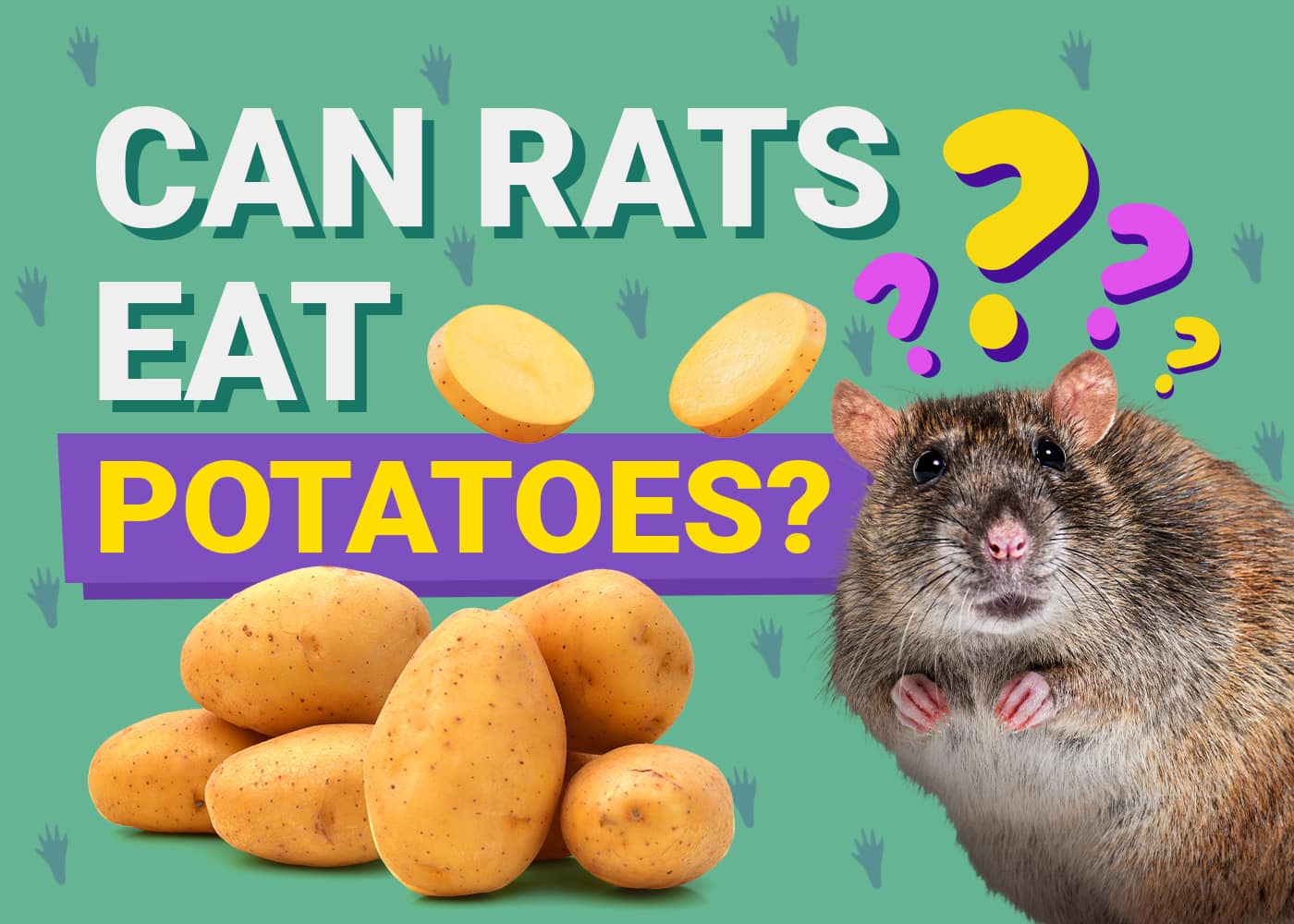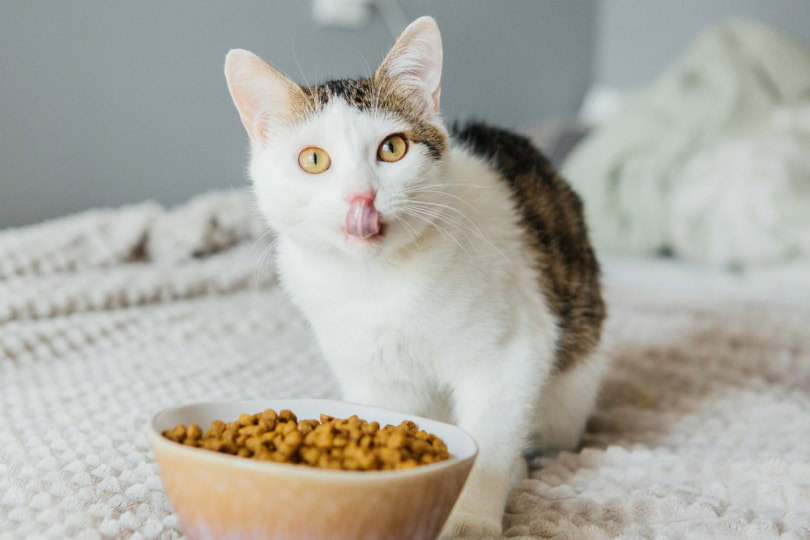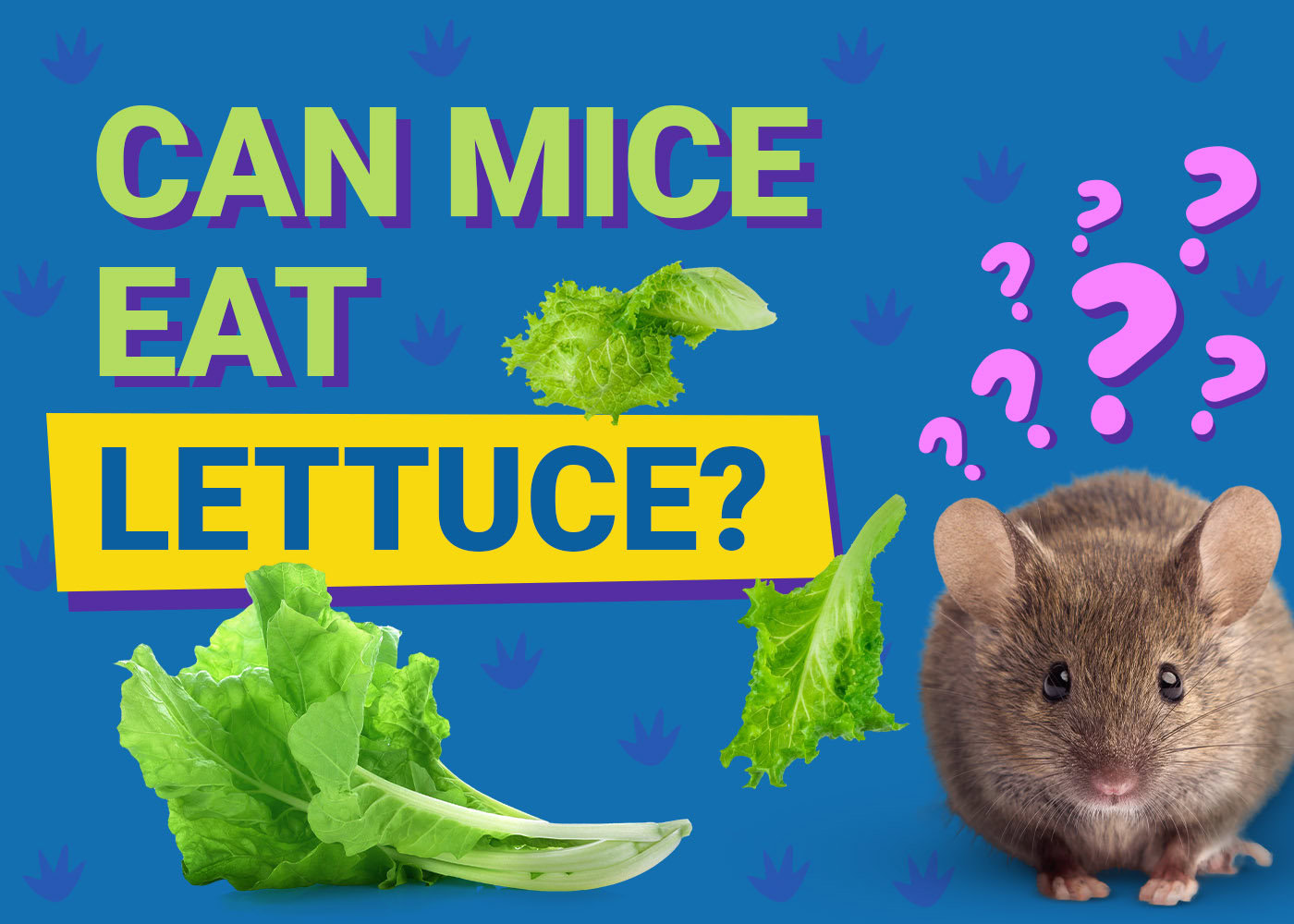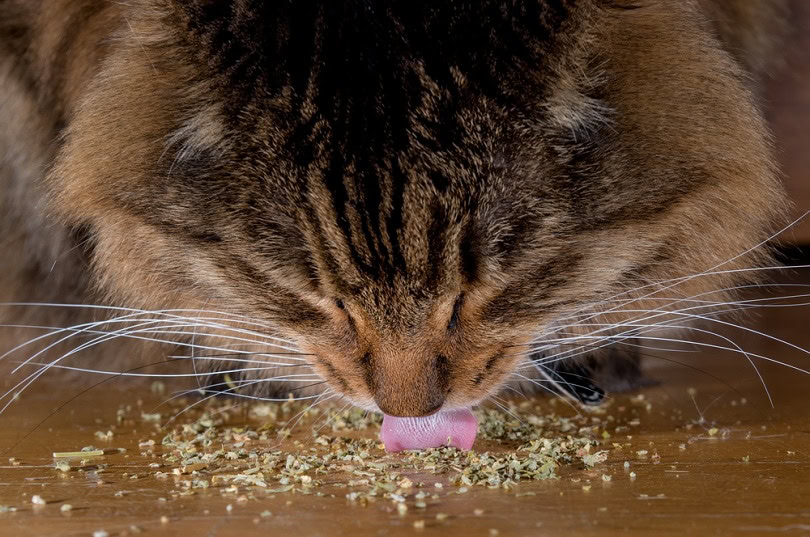VET APPROVED

The information is current and up-to-date in accordance with the latest veterinarian research.
Learn more »Click to Skip Ahead
When you think of rats, it’s hard not to picture Templeton from “Charlotte’s Web” dashing through the fair, eating every piece of garbage, and exulting in the pleasure of it all. While rats might not break out in song and dance in excitement over food, they enjoy eating various foods.
Their omnivorous nature means they can eat and digest veggies, fruit, and meat. Potatoes are on the list of foods that rats can eat safely. Cooked, unseasoned, peeled potatoes are considered safe for pet rats.
Keep reading to learn more about rats and potatoes and some other foods your rat can and cannot eat.

What Parts of the Potato Are Safe for Rats to Eat?
Rats aren’t picky and will happily eat any parts of a potato you feed them. They can eat the flesh and skin safely. The most important thing to remember is how you’ll prepare the potatoes. For your pet’s safety, rats should not be fed raw potatoes, as they may be infected with an organism known as Fusarium solani. This is a naturally occurring fungus found in soil all over the world.
It has been known to cause respiratory issues in several pets, including rats, and it causes “dry rot” in crops.1 Although a “normal-looking” potato is likely risk-free, it may contain trace amounts of the fungus, so it’s best to avoid feeding it to your pet.
Unripe potatoes, new shoots, and the mature leaves of the plant are also considered toxic for rats since they contain high levels of a compound known as solanine. This natural pesticide protects the plant and has experimentally been shown to be toxic in rats raising litters of pups.2
The amount of solanine in a ripe potato is considerably less than that found in other parts of the plant. Cooking potatoes further reduces it (which is how potatoes should be prepared for your pet). Cooking potatoes also eliminates the risk of Fusarium solani.
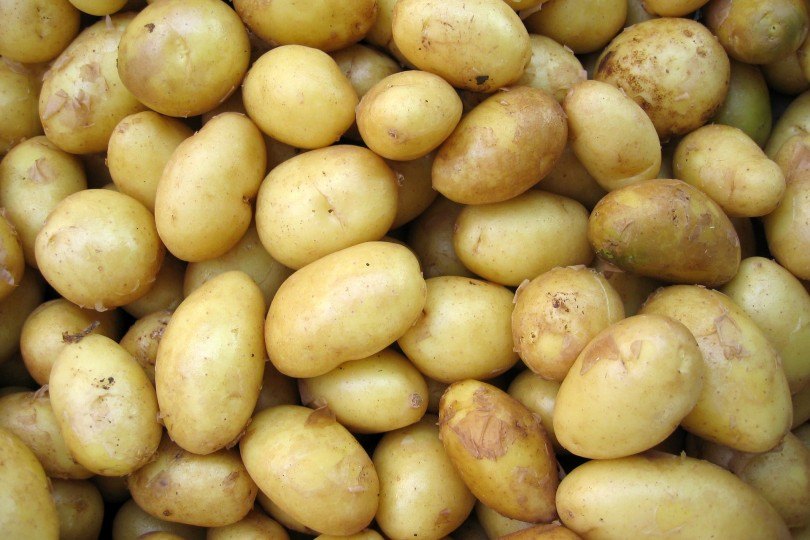

How Should You Prepare Potatoes for Rats?
Rats should only be served cooked potatoes. They should be unseasoned and can be prepared by either boiling or steaming them. The potatoes can be offered in manageable portions, and they can be mashed. However, the potato mash should not contain added ingredients like cream or milk.
Are Potatoes Beneficial for Rats?
Yes, there are health benefits to feeding potatoes to your rats. In experimental studies, rats that were fed a diet based on steamed potatoes for 3 weeks showed significant improvement in antioxidant production, blood lipid profile, and cholesterol levels in their liver. They also had other noticeable effects compared to the control group.3
The benefits of potatoes can be summarized as follows:
- Antioxidants: Potatoes are rich in antioxidants, which lower oxidative stress and reduce the risk that oxidative stress may pose to your pet. The primary antioxidants in potatoes are vitamin E and carotenoids (primarily lutein).
- Potential Heart Benefits: Given potatoes’ fiber and antioxidant properties, it is hypothesized that potato consumption can improve blood lipid and protein profiles, protecting your pet’s heart.
- Vitamin C: Potatoes are high in vitamin C. While rats can make this vitamin on their own and don’t need it supplemented in their diet, a rat that is unwell or recovering from an ailment may benefit from including vitamin C in their diet.
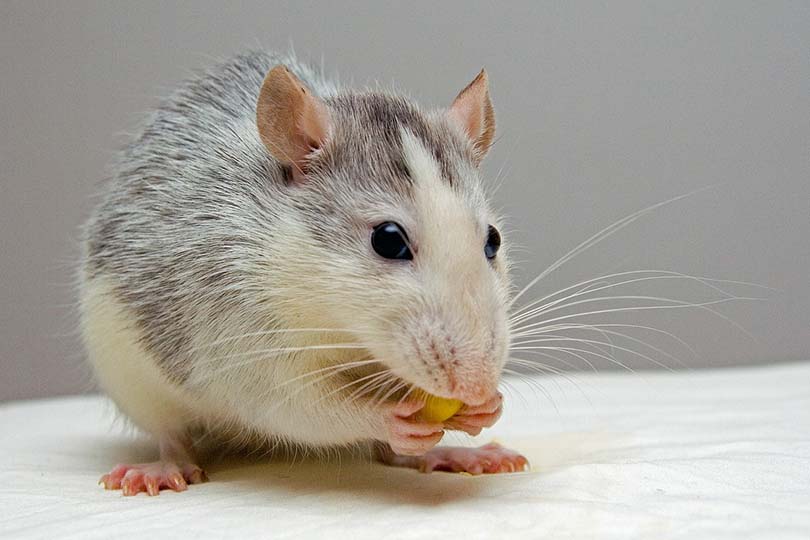
What Other Fresh Produce Can You Feed Rats?
Most of your rat’s diet should come from pellets specifically made for rats. Fruit and vegetables should be given to your rat regularly as well. While potatoes are a healthy choice, your rat needs a varied diet to stay healthy. Giving your pet rat different foods can also be an enrichment activity, especially when you hide them and allow your rat to sniff them out. Some favorite vegetable and fruit treats include:
What Foods Should You Not Feed Rats?
There are some foods you should never feed rats. These include:
- Anything rotten
- Raw sweet potatoes
- Raw dried beans
- Dried corn
- Canned veggies
- Rhubarb
- Sugary or salty processed foods
- Sticky foods
- Green bananas
- Raw Brussels sprouts
- Blue cheese
- Dairy Products
This list isn’t exhaustive, and not all the foods are toxic. However, they are not recommended when factoring in your pet’s long-term health. Some of the foods on this list may seem surprising. After all, rats love cheese! However, adult rats are generally lactose intolerant. Many cheeses also contain naturally occurring molds that are harmful to pet rats.
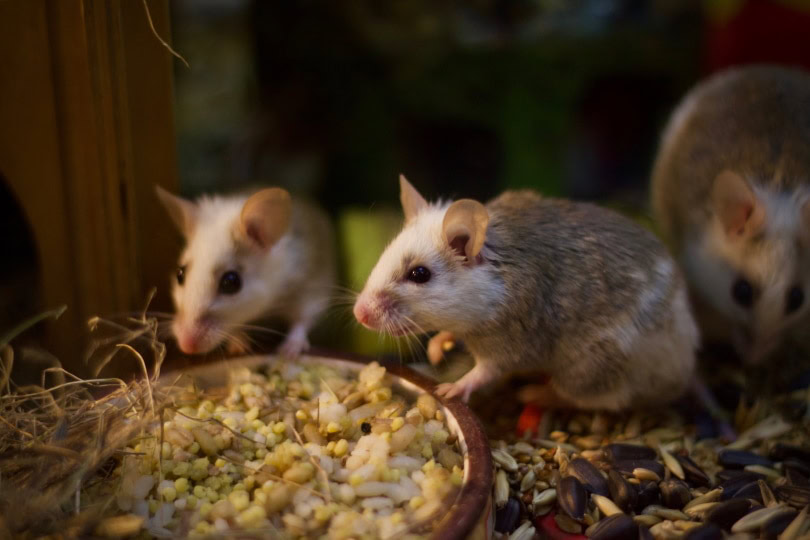

Final Thoughts
The good news is that feeding your pet rats cooked, unseasoned potatoes is perfectly fine. They will also benefit from a variety of fresh fruits and veggies. However, it’s important always to check to ensure it’s safe to feed your rat new foods. With that in mind, it’s best to consult your exotic veterinarian when incorporating different foods into your pet’s diet.
- Related Read: Can Cats Eat Sweet Potato?
- Entire potato consumption improves lipid metabolism and antioxidant status in cholesterol-fed rat
- Toxic effects of potato sprouts and of solanine fed to pregnant rats
- https://www.sciencedirect.com/science/article/abs/pii/B978008046884600926X
- Pathogenic effects of Fusarium sulphureum, Fusarium solani coeruleum and dry rot affected potatoes on the internal organs of rats.
